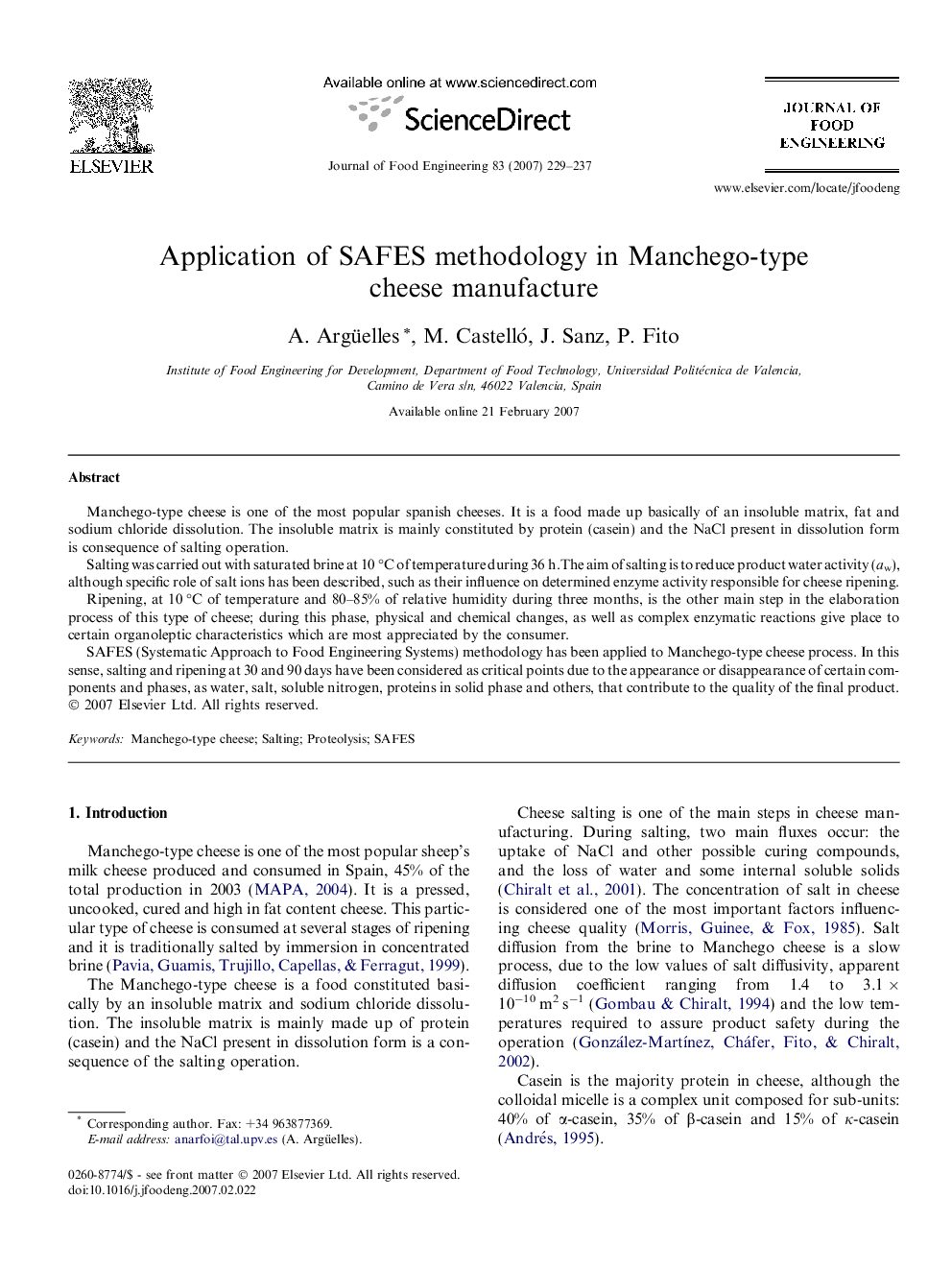| کد مقاله | کد نشریه | سال انتشار | مقاله انگلیسی | نسخه تمام متن |
|---|---|---|---|---|
| 226208 | 464528 | 2007 | 9 صفحه PDF | دانلود رایگان |

Manchego-type cheese is one of the most popular spanish cheeses. It is a food made up basically of an insoluble matrix, fat and sodium chloride dissolution. The insoluble matrix is mainly constituted by protein (casein) and the NaCl present in dissolution form is consequence of salting operation.Salting was carried out with saturated brine at 10 °C of temperature during 36 h.The aim of salting is to reduce product water activity (aw), although specific role of salt ions has been described, such as their influence on determined enzyme activity responsible for cheese ripening.Ripening, at 10 °C of temperature and 80–85% of relative humidity during three months, is the other main step in the elaboration process of this type of cheese; during this phase, physical and chemical changes, as well as complex enzymatic reactions give place to certain organoleptic characteristics which are most appreciated by the consumer.SAFES (Systematic Approach to Food Engineering Systems) methodology has been applied to Manchego-type cheese process. In this sense, salting and ripening at 30 and 90 days have been considered as critical points due to the appearance or disappearance of certain components and phases, as water, salt, soluble nitrogen, proteins in solid phase and others, that contribute to the quality of the final product.
Journal: Journal of Food Engineering - Volume 83, Issue 2, November 2007, Pages 229–237